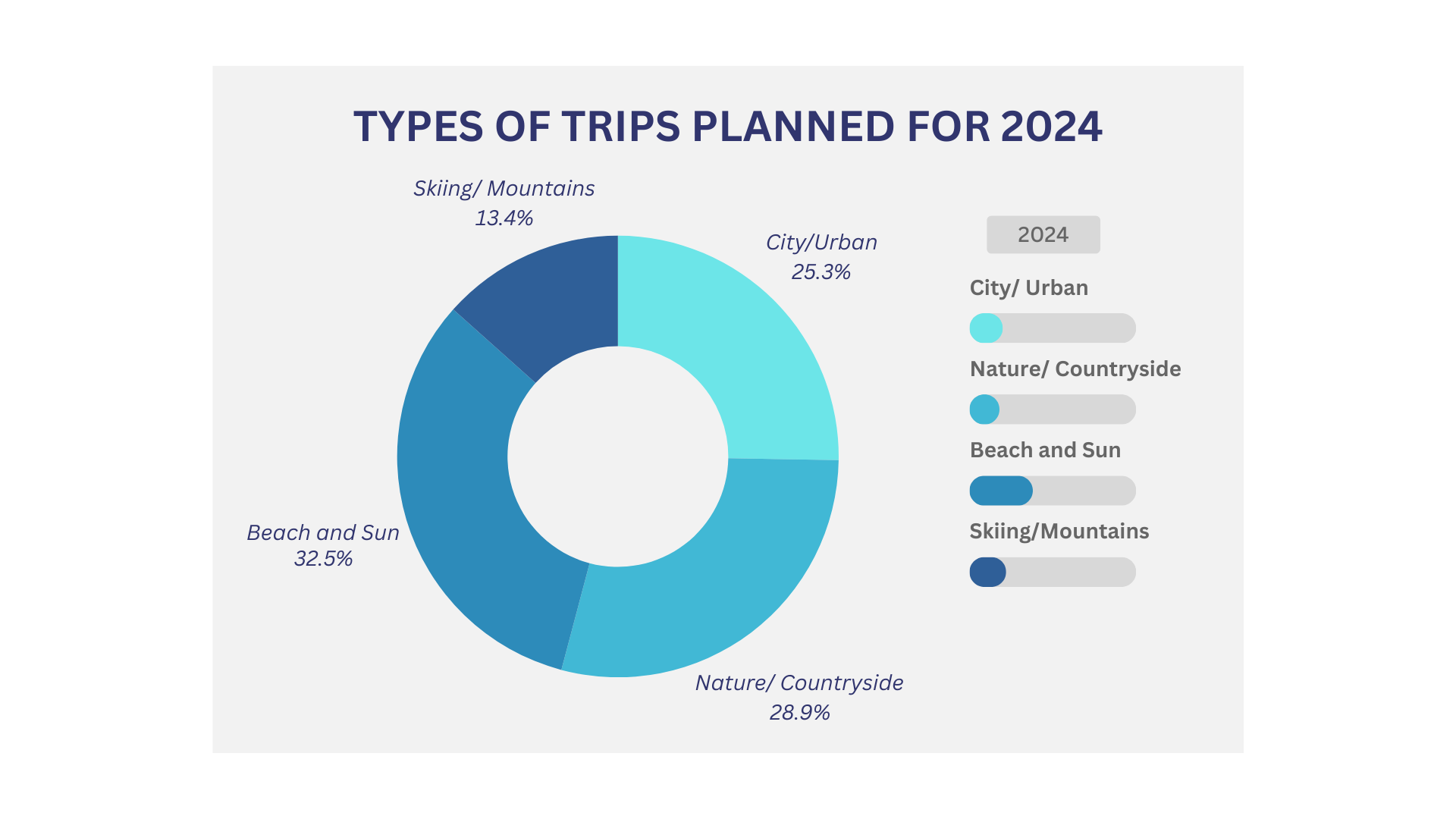The landscape of luxury travel and tourism is undergoing significant changes, driven by evolving consumer preferences and behaviors.
According to a recent McKinsey report, the traditional image of luxury travelers is being reshaped by new trends and demands. This shift presents both challenges and opportunities for tourism operators aiming to attract and cater to this affluent segment, staying attuned to the needs and desires is crucial for long-term success.
As the luxury travel landscape continues to change, those who innovate and adapt will be best positioned to thrive in this dynamic market. Here are the key findings from the McKinsey article, and our strategic insights for tourism operators:
Understanding the Modern Luxury Traveler
Demographic Shifts:
The luxury travel market is no longer dominated by older, wealthy individuals. There is a growing presence of younger, affluent travelers who value unique and personalized experiences. Millennials and Gen Z travelers are increasingly influential, bringing different expectations and behaviors. They prefer experiences over material goods and value authenticity and sustainability in their travel choices.
Experience Over Goods:
Today’s luxury travelers prioritize unique, immersive experiences over traditional luxury goods. This includes bespoke travel experiences that offer cultural immersion, adventure, and personal enrichment. For example, instead of just staying in a five-star hotel, luxury travelers might prefer a curated cultural tour or an eco-friendly safari that offers a deeper connection to the destination.
Digital Influence:
Luxury travelers are heavily influenced by digital platforms. They rely on social media, travel blogs, and review sites to make travel decisions. Online presence and digital marketing are crucial for reaching and engaging this audience. Personalized digital interactions and seamless online booking processes enhance the travel experience, making it important for operators to invest in robust digital strategies.
.png)
Strategic Insights for Tourism Operators
-
Emphasize Unique and Personalized Experiences:
To appeal to modern luxury travelers, tourism operators should focus on creating unique, tailor-made experiences. This could include exclusive access to cultural events, personalized itineraries, or unique accommodation options such as boutique hotels or luxury eco-lodges. Emphasize experiences that are difficult to replicate, such as private tours, behind-the-scenes access, or local expert guides.
-
Leverage Digital Engagement And Influencer Networks:
Investing in a strong digital presence is essential. This includes a user-friendly website, active social media profiles, and engaging content that showcases the unique experiences on offer. Collaborating with travel influencers and encouraging user-generated content can significantly boost visibility and credibility. Luxury travelers often seek recommendations from trusted sources, and authentic endorsements can drive interest and bookings. Leveraging data analytics to personalize marketing efforts can help attract and retain luxury travelers. Additionally, providing seamless digital and service options can improve the overall travel experience.
-
Focus on Sustainability:
Sustainability is a key concern for younger luxury travelers. Operators should highlight their commitment to sustainable practices, such as eco-friendly accommodations, responsible wildlife tourism, and support for local communities. Certifications and partnerships with recognized environmental organizations can enhance credibility and appeal to eco-conscious travelers.
-
Engage With and Challenge Your Guests
While mimosas by the pool will always be a reliable getaway for many luxury travellers, they’re still hoping to maintain or improve their wellbeing while they’re on holiday. They’re also hoping to permeate the surface of the area or region they’re travelling in. If your tours and activities offer unique insights into your local culture or landscapes, or are physically challenging experiences, then (with the right marketing and strategic partnerships) you’re well-positioned to access a luxury network of travellers.

Addressing Common Myths
Myth 1: High Net Worth Equals Older Demographics
As mentioned earlier, younger generations are a growing segment of the luxury travel market. Understanding their preferences and tailoring offerings to their desires is crucial for staying relevant.
Myth 2: Luxury Travelers Are Not Digitally Savvy
On the contrary, luxury travelers are highly engaged online. They use digital channels for research, booking, and sharing their experiences. A strong digital strategy is essential for reaching and engaging this audience.
Myth 3: Luxury Equals Decadence
While opulence is still valued, today’s luxury travelers also seek balance and authenticity. They are willing to pay a premium for experiences that are genuine and reflective of the local culture; or provide health and fitness options such as meditation, gyms, and anti-ageing treatments.

The luxury travel market is evolving, driven by demographic shifts, changing preferences, and the influence of digital technology. For tourism operators, understanding these trends and adapting strategies accordingly can unlock significant opportunities.
By emphasizing unique experiences, enhancing digital engagement, focusing on sustainability, leveraging influencers, and offering exceptional customer service, operators can attract and retain modern luxury travelers.
Wherewolf works with tourism operators across every segment and every market. If you want to learn more about Wherewolf and how we fit into your business, request a demo using the link below!
